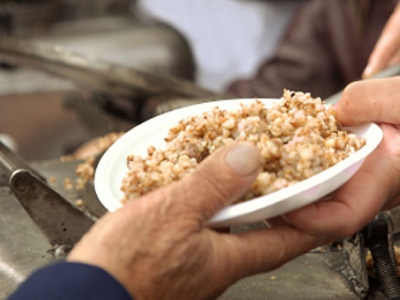
11 ways to engage your family in social justice
Helping kids understand poverty, sustainability and why God wants us to love others.
When we look around the world—at our own country, community, or perhaps even when we look within ourselves—we see all kinds of suffering. We look for the day when "he will wipe away every tear from their eyes. There will be no more death, or mourning or crying or pain, for the old order of things has passed away". (Revelation 21:4)
But right now as Christians, we are called to welcome the stranger, the other, the "not like me". This welcoming is part of the process of becoming like Jesus that we must teach our kids, for their sakes and for the sake of God’s kingdom. Social justice is not an optional extra; it is at the heart of the good news of the gospel—it is about the intrinsic worth and dignity of all things.
This view of social justice is based not just on ‘doing to and doing for’ but ‘doing with and being with’. It is reflected in the Micah challenge: "act justly, love mercy and walk humbly with your God" (Micah 6:8). It is a view of the Christian life that calls us to true worship that includes sharing our bread with the hungry and ministering to the whole person, and moving from the ‘temple’ to the street.
We often think of social justice as out there, to ‘them’ or to the ‘least of these’ but social justice begins at home, in our own neighbourhoods and communities. It is looking for the stranger within our own communities and seeing ‘we’ instead of ‘them’. It is teaching our children to value and celebrate diversity, to empathise and see the challenges behind people’s struggles in life. It is in encouraging critical thinking about the world and the values we see all around which teach us to demonstrate our value by contributing to consumption.
With that in mind, here are some ideas we have found helpful in our family:
- Recognise that research shows that the more ‘stuff’ we have, the less happy we are. Make time for the things that really make us happy, for relationships and being involved in something that gives us purpose and meaning in our lives.
- Look for ways to reduce, recycle and reuse. Start noticing potential in what has been discarded by others. Visit op shops and look for ways to redesign and redeem items. Make it a fun, creative process.
- Teach children how our social structures create poverty and damage the environment.
- Challenge messages and images in the media. Play the ‘spot the lie’ game with advertising. Draw attention to the way that advertising is used to make us unhappy and dissatisfied with what we have.
- As a family, watch programs on television about social issues from a balanced perspective. Avoid sensationalist current affairs programs which create blaming and a ‘them and us’ culture.
- As a family, get passionate about a social issue that you have some personal experience of. It may be an issue connected to disability; mental health; justice for kids; refugees; race; or women’s issues. Be aware of the developmental needs of your kids—exposure to distressing issues can leave kids feeling overly responsible and overwhelmed.
- Teach your kids that you value their voice and they have a right to be heard. As they learn that they can speak up for their own needs, they learn to speak up for the needs of others and against injustice and abuse. Teach them that they are capable of thinking and solving problems and that they can make a difference in the world.
- Think through, as a family, issues about serving and giving to others. Be wise and involve kids in decisions especially when it impacts them. Some Christian families put their kids at risk, believing misguidedly that the church’s or others’ needs come before the needs of their family. Kids can end up believing that God is a cosmic sadist who does not want them to have good things. Good things also involve protection, time and attention from parents and not just material possessions.
- Advocate for and buy, where possible, fairly traded products.
- Think through how your family can have less materially, but celebrate and share more at Christmas.
- As a family, support an organisation that works for social justice, for example, Anglican Aid, TEAR and Compassion.
For more articles from Growing Faith, subscribe to our monthly e-newsletter.
To hear about the latest books and resources from Youthworks Media, subscribe here.







